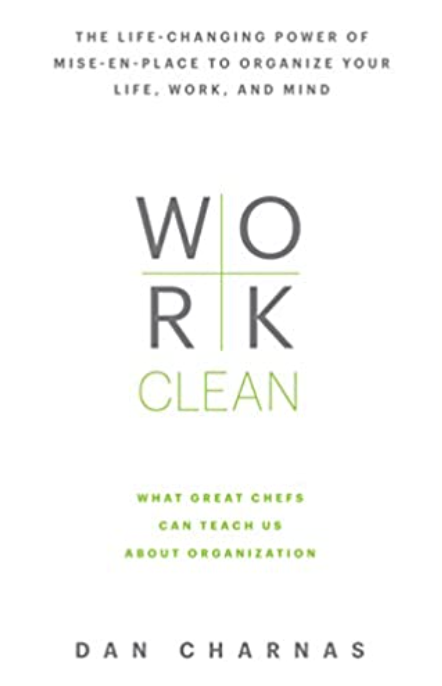This book changed my thinking about how I organise my time, and my workspace – it provides a reference that I come back to regularly to remind myself of a few simple things that I can easily do to create a better work experience. It also reinforced that being able to focus is not just a matter of willpower – you can influence this by your physical and virtual spaces.
The concept of mis-en-place helped me figure out how to set myself up to give myself the best chance of avoiding distraction; there are a number of other chef and kitchen related reference – I liked the spatial, tangible aspect of this. The concept of creating space (whether mental, temporal or physical) for different tasks – setting these clear boundaries reduces mental load and allows me to focus on the here and now, rather than worrying about all the other things I might be forgetting. (Side note – this mindful practice is one I’m trying to use when I’m running – focusing on the here and now, not what’s gone before or is coming up).
Here are some key things I took from the book:
- The first moments matter more than later ones – the present has more value than the future. I think about what I can do now, to unlock the potential for others to do the things they need to. Does someone need an email from me to approve something, some instruction on how to proceed, some follow up to provide accountability? What can I do now which allows others to progress their work. (The trick is to not get sucked into using your email inbox as a task list….!) Alternating between this ‘process’ time, and immersive tasks throughout the day can work, and batching emails/ messages to these times has a huge impact on my day.
- Daily Meeze – setting aside time to plan the day. I like doing this at the end of each day, so I don’t need to spend mental energy in the morning (when I’m at my best) deciding what to do – I can jump into the doing. In doing this planning, it’s more than writing a list – it’s putting time to it. I like this for a couple of reasons – – it keeps me accountable to work efficiently, but also stops me from letting the task expanding to fill an unconstrained time period. I use Todoist as my task planner – this is one of the most useful things in my tech stack particularly in managing mental load – whenever I remember something I have to do I put it in the inbox, and then regularly sort the inbox. Then it’s somewhere, and I don’t have to worry about forgetting it.
- Setting clear blocks for immersive tasks. The concept of time blocking is popular, for good reason and turning off distractions, having a clear goal for a session, and going deep into a task is incredibly rewarding. These are some of the pre-conditions to flow state – something pioneered by Mihaly Csikszentmihalyi and will be the subject of an upcoming post.
- Finishing mentality – but also leaving a Hemingway Bridge. I ask myself – is it easier to just finish the task now, rather than pick it up later? Why am I resisting finishing it now? If the answer really is ‘later’ then finish task in a tidy way – and leave a clear pathway for what to do next so when you come back to it, it’s easy to jump in.
- Understanding what we’re after is excellence, not productivity. Productivity is working hard, excellence is working clean. To me this means using my time in the most effective way I can – what is the impactful thing I can do now – and prioritising this, rather than chasing perfection.
Oh and I always try to clean my kitchen as I’m cooking now!
The book is available in a few different formats; check out more at the website.





